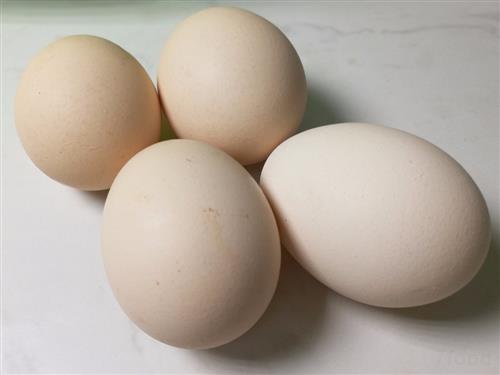Will eating cholesterol increase? How do eggs eat nutrition?
Egg is a common food in life. It is rich in high-quality protein and mineral elements. Regular consumption not only supplements the nutrients the body needs, but also enhances memory and prevents aging. It is referred to by nutritionists as “all-nutritional foodâ€. , is a cheap supplement for all ages. However, due to the high level of cholesterol in egg yolks, most people think that eating eggs, especially egg yolks, will increase the level of bad cholesterol in the blood, which would make many people discourage it, and some people only eat protein and discard egg yolk. . So, does eating yolk actually increase cholesterol and lead to cardiovascular and cerebrovascular diseases? The nutritional value of eggs Egg is a kind of food for all ages. It is rich in protein, vitamins, lecithin and trace elements. Its protein quality is second only to breast milk and it is one of the best sources of nutrition for humans. According to the determination, each 100g egg contains protein 13.3g, cholesterol 585mg, fat 8.8g, carbohydrate 2.8g, sodium 131.5mg, potassium 154mg, calcium 56mg, magnesium 10mg, iron 2mg, vitamin E 1.84mg, phosphorus 130 mg, zinc 1.1 mg, vitamin A, 234 μg, selenium 14.34 μg, copper, 0.15 mg, hydrochloric acid 0.2 mg, manganese 0.04 mg, vitamin B1 0.11 mg, vitamin B2 0.27 mg. Do eating eggs raise cholesterol? All along, people think that eating too much cholesterol will increase the risk of cardiovascular disease, so most people think that eating more than one egg every day, and even some people never eat egg yolk. But in fact, 70% of human blood cholesterol is self-synthesis, and only 30% of food intake, so the latest version of the American Dietary Guidelines has also removed restrictions on cholesterol intake. In addition, an egg of about 50g, egg yolk about 32% of the total weight of the egg, then an egg's egg yolk weight is 16g, each 100g of egg yolk contains about 1510 mg of cholesterol, so an egg in the egg yolk cholesterol content of about 242 mg . Every day, the human body needs about 300-500 milligrams of cholesterol from food, and the cholesterol absorption rate is only 30%. As the content of food cholesterol increases, the rate of absorption also decreases. According to this calculation, a person can eat about 3 or 4 eggs a day to reach a cholesterol intake of 300 milligrams. Of course, other foods ingested also contain cholesterol. However, no one should eat 3 or 4 eggs a day. Therefore, eating eggs does not increase cholesterol, and it is not necessary to eat protein and give up the egg yolk. It should be noted here that cholesterol in the diet is different from cholesterol in the blood, and the relationship between blood cholesterol and cardiovascular disease is conclusive. Compared with cholesterol, controlling the intake of saturated fatty acids can reduce the risk of cardiovascular disease. How do eggs eat nutrition? There are many ways to eat eggs, such as fried eggs, scrambled eggs, steamed eggs, braised eggs, boiled eggs, poached eggs, red eggs ... In terms of nutrition and absorption, boiled eggs are the best. Egg cold water pot, boil and then simmer for 3 minutes, soaked for 5 minutes after the fire off and then picked up, the cooking process does not exceed 10 minutes, 8 minutes is the best, so boiled eggs are tender, but not without Cooked, the nutrients are the most abundant and the most digestible. Is it best to eat a few eggs a day? Although eating 3 or 4 eggs a day can reach the amount of cholesterol that the body needs to consume, eggs are high-protein foods. Eating too much will increase the burden on the kidneys. Generally speaking, children and the elderly can eat 1 egg a day. It is advisable to have more than 2 adults. GMP Certificated Immune Globulin Injection Supplier in China Hepatitis B Immunoglobulin,Hep B Immunoglobulin,Hepatitis B Immunoglobulin Vaccine,Hepatitis Immune Globulin FOSHAN PHARMA CO., LTD. , https://www.pharmainjection.com


